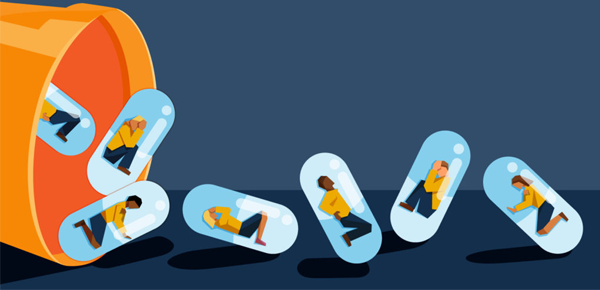Addiction is largely seen as a choice in broader society, as a weakness or moral failing. The most common misconception regarding drug abuse is that the addicts ‘choose’ to consume it every time they take a dose, and they can stop the consumption as and when they want. In certain cases, it might be so, but when one gets addicted to a drug and stops consuming it abruptly, it may also cause withdrawal symptoms.
The most common argument is that not everyone who uses drugs becomes addicted to it, but different bodies react differently to drugs. People with a genetic history of drug use are usually more vulnerable to addiction than others.
It is argued that consuming a drug for the first time is always a choice, and if one resists that temptation for the first time, then there would not be any scope of addiction. Judging a person on a moral scale instead of being empathetic may result from not considering possibilities like drug use in a family or in school/college.
Drugs affect one’s brain, and it is not easy to stop if one has developed an addiction to it. Drugs stimulate the reward circuitry in one’s brain. Reward circuitry releases dopamine, a chemical that induces pleasure into one’s brain whenever one participates in a beneficial activity. Drugs work the same way, just that they release 2 to 10 times more dopamine desensitizing the body and brain, and causes a loss of pleasure from all other activities.
Mental dependence on drugs, on the one hand, affects the release of dopamine in the body, whereas, on the other hand, physical dependence may lead to fatigue, insomnia, and loss of appetite. Once someone reaches this stage of dependence, drug consumption can no longer be called a choice. The American Psychiatric Association [APA] and the National Institute on Drug Abuse [NIDA] both define addiction as a “brain disease.”
Understanding addiction as a disease and not a moral failing or weakness can be instrumental in overcoming the hurdles of treatment. Scientific research accepts addiction as a disease, but in broader society, where mental illness in itself is a stigmatised topic, accepting addiction as a mental illness requires awareness about the problem. De-addiction centres in Pune argue that the name “Substance Use Disorder” itself suggests that addiction is not a choice, but a disorder.

